ARTICLE AD BOX

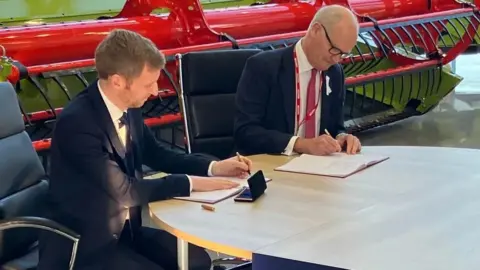 BBC
BBC
Former Local Government Minister Lee Rowley signed devolution papers with Suffolk County Council leader Matthew Hicks in 2022
Plans to give Norfolk and Suffolk greater powers have been scrapped by the new government, the BBC understands.
Ministers have told the two county councils the devolution deal agreed with the last government was not ambitious enough.
Under the plans, both counties would have received between £16m and £20m a year to spend on infrastructure and other projects overseen by a directly elected leader.
It is understood there were also concerns in government over where the money was going to come from.
Both deals were due to kick in next year, with elections for the new directly elected leader for each authority taking place in May.
But it is understood the councils have been told by the Ministry of Housing, Communities and Local Government it does not want to proceed with the plans.
An official announcement is expected by the end of the week.

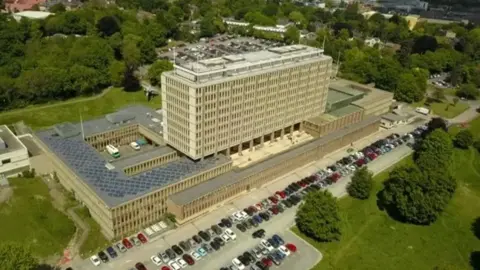
Increased devolution would have meant more powers for Norfolk County Council
What was in the deal?
The thinking behind devolution was that local leaders know the needs of their communities better than Whitehall.
Under the deals for Norfolk and Suffolk, the two counties would have had a directly elected leader with greater control over building, skills training, adult education and possibly transport.
There would have been extra money for local projects: £20m a year for Norfolk and £16m a year for Suffolk, guaranteed for 30 years.
Those in favour of the plans said, in time, the counties would have been able to take on more powers, while money could be borrowed to fund major infrastructure projects.
But critics had called it a very poor deal compared with other devolution agreements.
Why has the government pulled the deal?
There has not yet been an official explanation but the BBC understands the Minister for English Devolution Jim McMahon felt the deals were not ambitious enough.
It is thought he did not like the idea of directly elected council leaders who would be answerable to his or her party, preferring a directly elected mayor who would be more detached.
Then there is the question of how the deal would be funded, with the minister said to have been unable to find a paper trail showing where the money was going to come from.
The Conservatives had always said it would be taken out of existing government budgets.

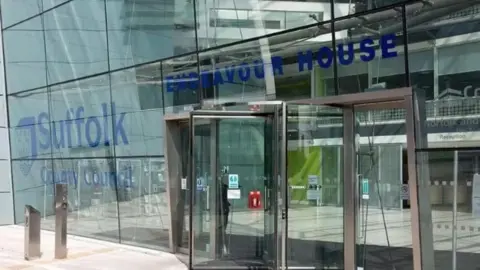
There would have been £16m a year extra for local projects in Suffolk
What will the reaction be?
Those who know about this decision in the two Conservative-run authorities are said to be stunned and furious.
They are likely to accuse the government of depriving the counties of around half a billion pounds of much-needed investment.
They will point to long overdue road and railway schemes which could have gone ahead with this funding.
Labour, which is already claiming to have been left with a £22bn "black hole", may well point to these deals as another example of an unfunded Conservative commitment.
Critics, along with the government, will say this is a chance to go back to the drawing board and come up with a better deal that would give the two counties more powers and money in the long term.
They will point to the government's promised English Devolution Bill that aims to make devolution the default setting for all local government.
But this decision means the long and, at times, bitter debate about devolution, which looked so close to coming to an end, could continue for many more years to come.

 7 months ago
31
7 months ago
31

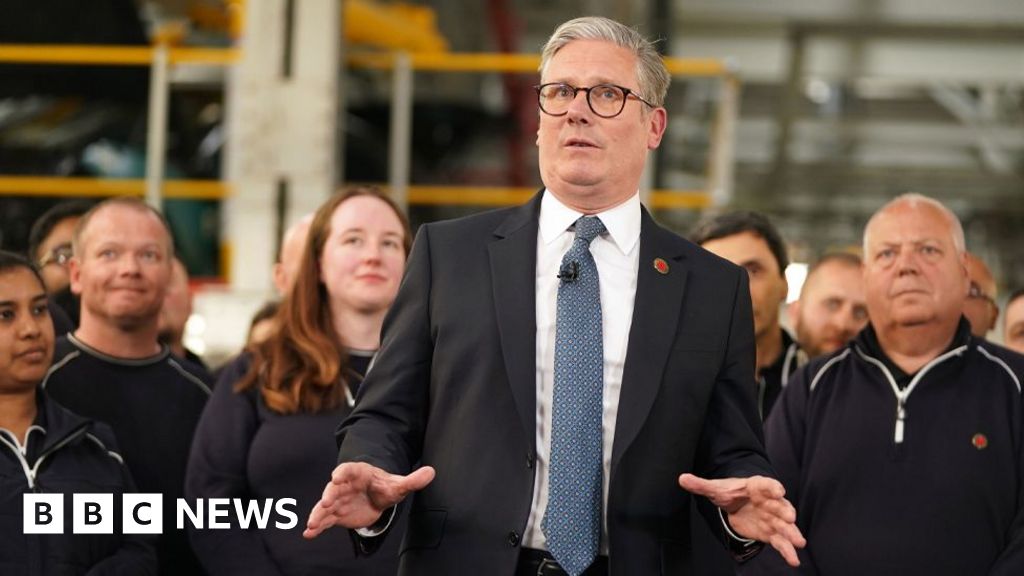
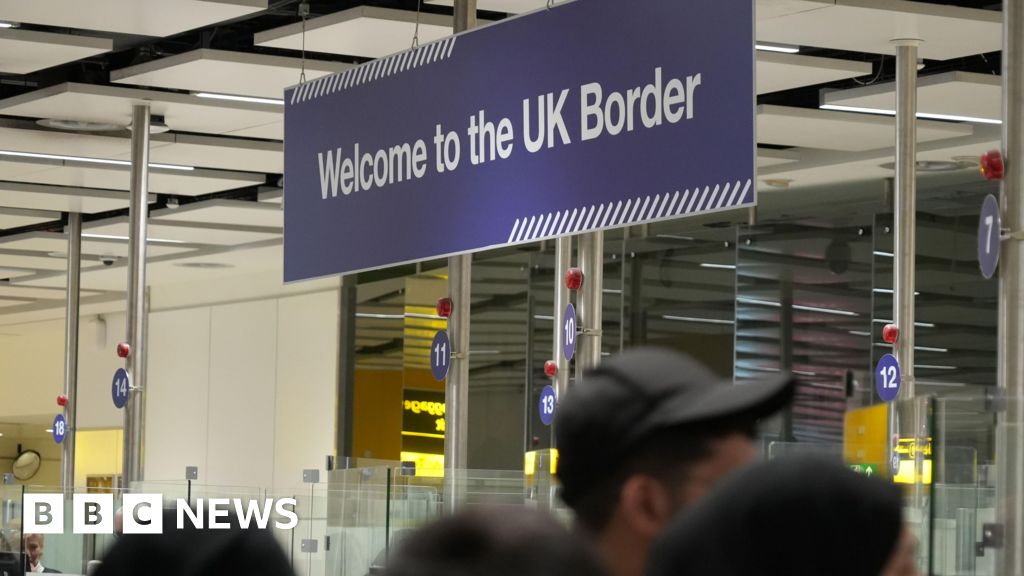





 English (US) ·
English (US) ·